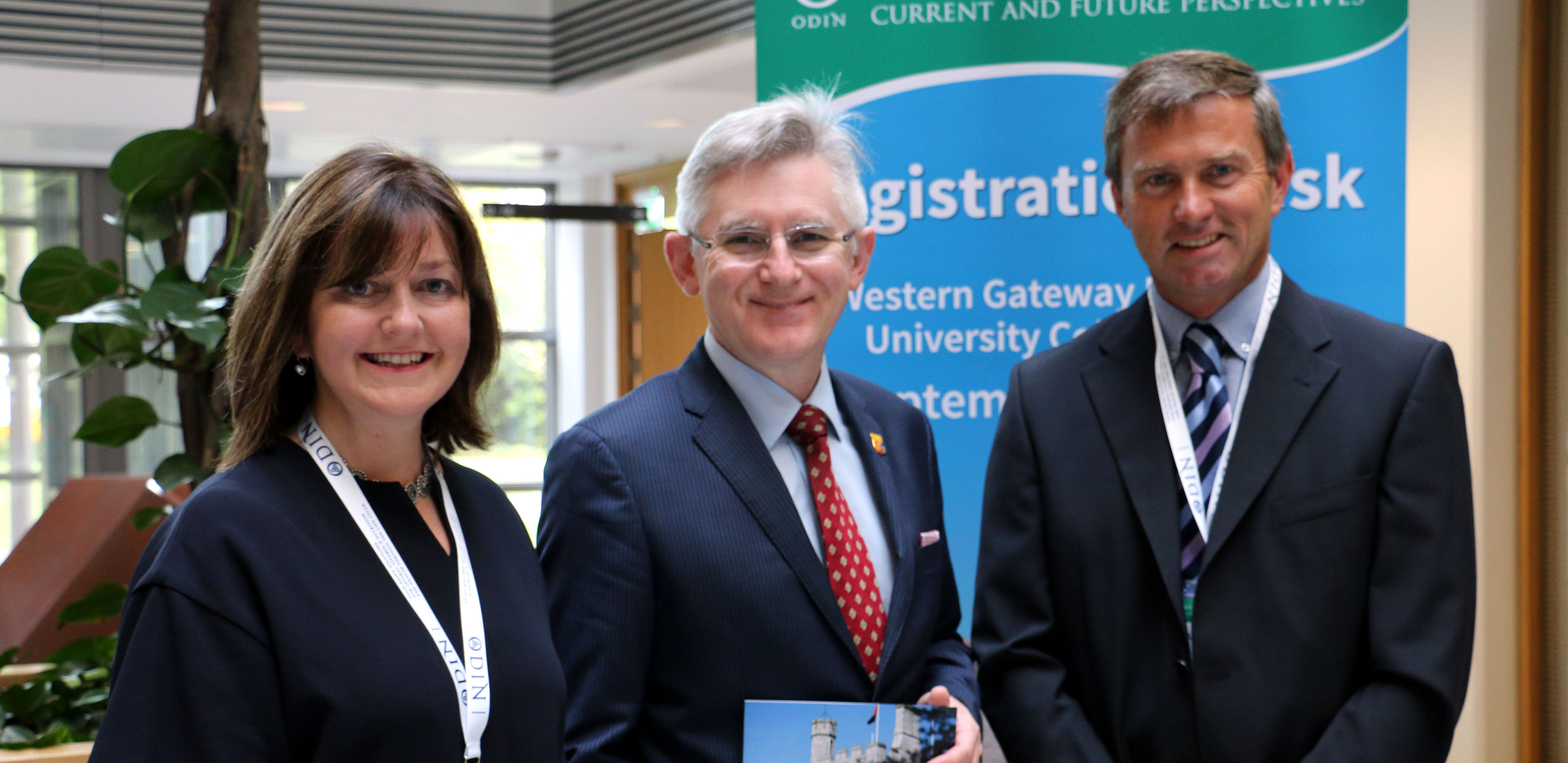The School’s Cork Centre for Vitamin D and Nutrition Research hosts international scientific conference on Vitamin D and Health in Europe at University College Cork

The Cork Centre for Vitamin D and Nutrition Research, based in the School of Food and Nutritional Sciences at University College Cork, hosted an international conference entitled Vitamin D & Health in Europe: current and future perspectives on the 5th and 6th September, 2017.
Prof Kevin Cashman and Prof Mairead Kiely, joint directors of the Cork Centre for Vitamin D and Nutrition Research, were delighted to welcome over 150 delegates to Cork, to mark the near-completion of their highly successful 4-year FP7 project on vitamin D. The ODIN [Food-based solutions for optimal vitamin D nutrition and health throughout life] project was funded by the European Commission in 2013, with a budget of €6M. With 30 participants from 18 countries, ODIN is currently the largest vitamin D research consortium globally. The project set out to develop safe, effective and sustainable food-first solutions to prevent vitamin D deficiency. Thus far it has generated ~35 peer-reviewed articles, with many more to come and has generated >250 citations in just over the 2 years since the first paper.
Vitamin D deficiency has significant implications for human health throughout life and impacts on healthy growth and development and successful ageing. In 2016, the ODIN project reported the prevalence of vitamin D deficiency in European citizens, at 13%, for the first time. It also identified that 1 in 6 pregnant women in Ireland has vitamin D deficiency and that almost half of newborns in this country are below the minimum internationally accepted threshold. Moreover, ODIN has identified vitamin D deficiency among older adults as a significant risk for premature mortality and cardiovascular mortality. Through an integrated programme of food science and technology-based studies, nutritional surveys and dietary modelling and clinical research in at-risk population groups, including children, adolescents, adults of ethnic minority, women during pregnancy and lactation and young children, the ODIN project has shown that it is technologically feasible to prevent vitamin D deficiency through food, with immediate and long-term benefits for human health for all European residents.
The joint directors were delighted to have Prof Patrick O’Shea, President of University College Cork, formally start the conference and provide the opening address, during which he highlighting the importance of continued cross-disciplinary research as was achieved in the ODIN consortium. Delegates benefitted each morning of the two-day conference with insightful presentations provided by our two distinguished and world renowned keynote speakers, Prof Susan Whiting, University of Saskatchewan, Canada and Prof Paul Lips, VU University Medical Canter Amsterdam, the Netherlands, who provided an overview into the key areas of research that were the focus for that day. The conference had four plenary sessions and a dedicated workshop focussed on food-based solutions. A core aim of this conference was to share ODIN research findings and update participants on vitamin D research in Europe, particularly in relation to the central themes of the project - vitamin D deficiency prevention through food fortification and bio-fortification, and vitamin D and health throughout the life-course.
The conference provided an opportunity for the coming together of world-leading researchers in vitamin D research as well as representatives from the Irish and European food industry sector to discuss current research and collaboration aimed at translating research data into knowledge for economic and societal benefit.
School of Food and Nutritional Sciences
Contact us
School of Food and Nutritional Sciences, Room 240 Food Science Building, University College, Cork
